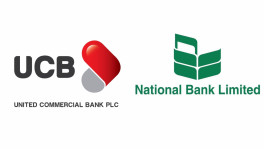The essence of talent management practices
In order to gain competitive advantages, organisations need to develop short-term, mid-term and long-term plans to attract, retain, engage and develop talented people.

Talent management refers to a set of strategies to attract, retain, engage and develop individuals with skills and knowledge who are valuable for an organisation. This concept emerged in the 1990s and continues to be adopted, as more organisations come to realise that their employee's talents and skills drive their business success.
The issue with many organisations today is that they put tremendous efforts into attracting talented people but spend little time into retaining, engaging and developing talent. A talent management system must work into the business strategy and be implemented in daily processes throughout the organisation as a whole.
It cannot be left only to the human resource department to attract, retain, engage and develop talented employees, but must be practiced at all levels of the organisation.

In a competitive business world, every organisation has felt the need to reduce expenses. This should be the ideal environment for talent management practices as a means of optimising every employee's performance as these practices are required to gain sustainable competitive advantages.
In order to gain these competitive advantages, organisations need to develop short-term, mid-term and long-term plans to attract, retain, engage and develop talented people and put the right person at the right job.
Talent attraction is a systematic way of presenting the organisation to people so that jobs become appealing and qualified people are encouraged to apply, while at the same time take pride in being a part of the organisation. The main focus of the CEO is to attract talented people with the required knowledge and potential skills. Employer branding is also significant to attract the right talents.
Talent retention is a strategy of retaining the talented employees for a longer period of time. The main objective of talent retention is to reduce employee turnover rate and also to play an important role to survive in the competitive labour market.
Talent engagement consists of physical involvement and psychological involvement towards the job. Engaged employees are the builders. They want to know the desired expectation for their role so they can meet and exceed them. They are naturally curious about their organisation and their place in it and perform at consistently high levels.
They want to use their talents and strengths at work every day and work with passion to drive innovation and move their organisation forward. They think more beyond the basic responsibility and try to exert maximum effort to achieve organisational goals. Moreover, engaged employees have been committed to their organisations which leads to higher productivity and lower employee turnover.
Talent development is an on-going approach of improving the knowledge and skills of existing talented employees to perform the current assignments properly and to cope with potential changes of business for the betterment of the organisation. It is a continuous process of upgrading talents, knowledge, skills and attitude and it should be integrated with the changes of the organisational requirements.
Moreover, investing in talent development is like investing in the organisation's future. To deliver quality services to the customers, to grow as a business and be better than the competitors, any organisation implements detailed talent retention and development plan once a candidate is successfully selected.
Recognising the importance of talent management practices, the CEO of an organisation deploys different talent management policies and strategies to sustain in the volatile competitive business environment. Finally, we may conclude some key features of talent management practices in an organisation. These are:
- A good understanding of talent management and its practices
- Recognition of talented employees with proper benefits and rewards
- Innovation and creativity are rewarded and recognised
- Diverse workforce is visible and most welcomed at all levels of an organisation
- Equal opportunity for the development of talented employees
- Flexible working practices are made available
- Existence of widely accepted and practiced set of values
- Recognition of diversity awareness as a business issue
- Solve any problem related to business and cultural differences through application of excellent talent management policies and strategies
I personally believe that the real difference between success and failure in an organisation can be very often traced by the question of how well it brings out the great energies and talents.
Dr Md Abu Taher is a member of University Grants Commission of Bangladesh, and a director of the Board of Directors, Jibon Bima Corporation, Dhaka
Disclaimer: The views and opinions expressed in this article are those of the authors and do not necessarily reflect the opinions and views of The Business Standard.


 Keep updated, follow The Business Standard's Google news channel
Keep updated, follow The Business Standard's Google news channel
















